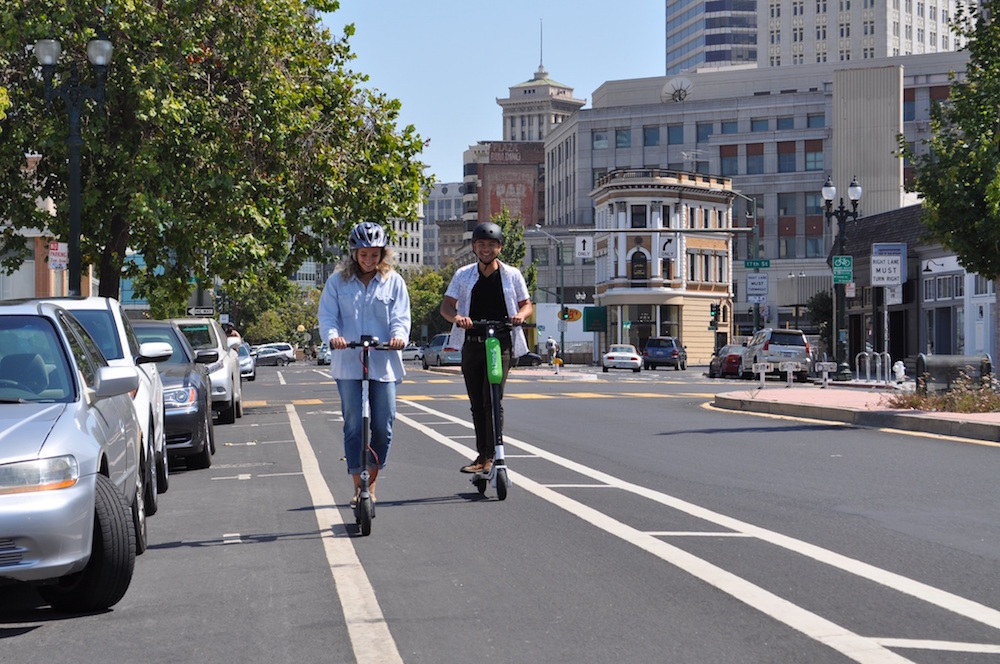Oakland has issued its first four official e-scooter permits, the city’s Department of Transportation announced Tuesday. The permits will allow the operators to provide the popular shared mobility service while holding them accountable to concerns that have been expressed by Oakland residents, city officials said.
The four operators who were selected are Bird, Clevr, Lime and Lyft. Each company’s permit application was reviewed by a team of city staff, who determined their eligibility based on an ordinance passed by the Oakland City Council last September. The council passed the ordinance for shared dockless electric scooters after receiving complaints of reckless riders and that scooters were left scattered on local sidewalks. Scooters in Oakland weren’t regulated before the ordinance was passed.
City officials said that to prioritize and incorporate the needs and concerns of community members, the ordinance requires operators to educate users on the correct and safe use of scooters, distribute the scooters equitably throughout Oakland, ensure accessibility and provide insurance and indemnification. The city said the four operators can launch their scooter fleets as soon as this week but companies may take several months to deploy their scooters.
The city has set a cap of 3,500 scooters for the initial deployment period, with Bird, Lime and Lyft able to deploy up to 1,000 scooters each and Clevr deploying a smaller fleet size in the near future. Adaptive scooters that allow people with disabilities to ride will be made available in the coming year.
Oakland Department of Transportation staff members held a series of community meetings before finalizing the permit system. City officials said shared e-scooters are the newest transportation option for commuting in Oakland and provide an affordable, portable option for residents, commuters, and visitors. They say e-scooters provide a “last mile” solution, addressing a specific challenge in transportation planning. According to the city, people who came to the community meetings emphasized that they would like to see more scooters in places such as West Oakland and East Oakland, where transit options are often inadequate, and near parks, libraries and plazas.
Department of Transportation spokesman Sean Maher said some of the operators will use geo-sensing technology to track scooters to warn users if they try to leave scooters in inappropriate locations. Maher also said all permit holders will be added to the city’s OAK 311 service to allow staff and the public to report and monitor complaints of improper parking and other issues. Maher said community members can report problems online or through the OAK 311 app by clicking report, providing a photo of the faulty or mis-parked scooter, selecting a location, scrolling to the “bicycle or scooter” category, clicking the corresponding company and providing a short description of the issue. He said complaints will then be forwarded to the appropriate company representative.
